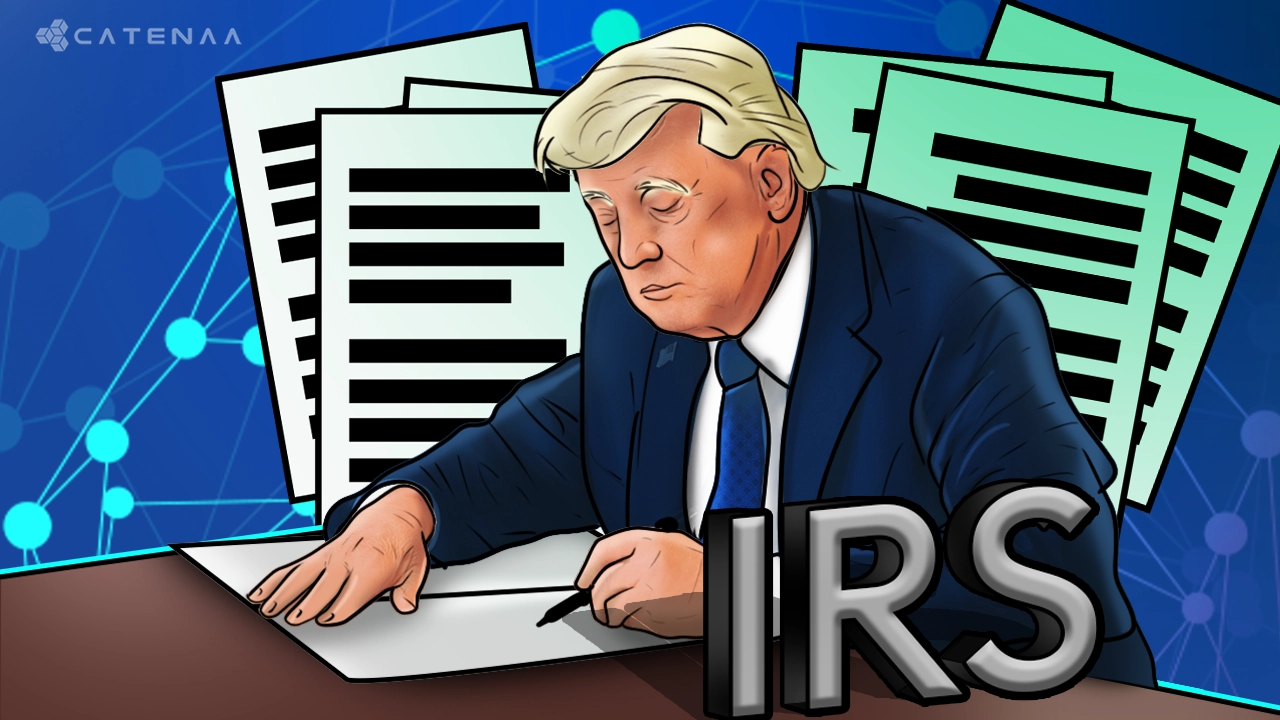Catenaa, April 11, 2025-President Donald Trump on Thursday signed a resolution repealing a late-stage Biden-era IRS rule that required custodial crypto brokers to collect and report user data to the tax agency, a move hailed by supporters as a win for digital asset innovation.
The resolution, introduced by Rep. Mike Carey, R-Ohio, and Sen. Ted Cruz, R-Texas, marked the first crypto-related bill signed into law. The now-defunct rule had drawn sharp criticism for extending traditional securities reporting requirements to decentralized finance participants, mandating issuance of tax forms and detailed transaction records.
“This repeal removes unnecessary bureaucratic hurdles and allows the IRS to refocus on its existing obligations to taxpayers,” Carey said in a statement after attending the signing ceremony.
The rule was finalized by the Treasury Department in December and targeted so-called “front-end service providers” that facilitate access to decentralized finance protocols. Critics argued the measure would stifle software development and push innovation offshore.
Trump’s action followed bipartisan votes in both chambers of Congress, with some Democrats, including Senate Minority Leader Chuck Schumer, joining Republicans in support.
Amanda Tuminelli, executive director of the DeFi Education Fund, welcomed the move, calling it a “critical signal change for the crypto industry” and a step toward a “sensible, forward-thinking approach to digital assets.”
The White House previously labeled the rule a “midnight regulation,” hinting at its repeal early in Trump’s term.
The now-repealed regulation would have forced decentralized operators to act as brokers, including issuing Form 1099s to users, raising broad privacy and compliance concerns across the industry.


